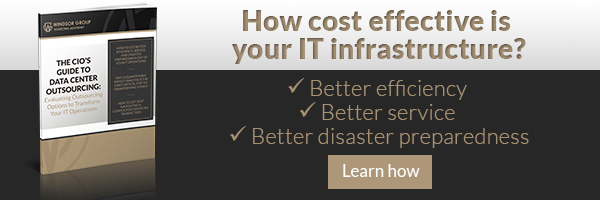 In many ways, the financial industry is still reeling from the economic upheaval of recent years. Meanwhile, consumer expectations are rising in every regard. You need IT solutions that boost both internal and external capabilities.
In many ways, the financial industry is still reeling from the economic upheaval of recent years. Meanwhile, consumer expectations are rising in every regard. You need IT solutions that boost both internal and external capabilities.
IT solutions have to live up to their billing – solving problems, both current and anticipated. More than that, truly useful IT solutions have to lay a solid foundation that enables financial enterprises to take quick advantage of new opportunities. If you can’t do that, you’ll see your competitive edge dulled beyond repair.
Getting a grip on big data.
Growing data volumes are affecting every industry, and data storage systems have to handle both structured and unstructured data. But as many are quick to point out, it’s not the size of your data, it’s how you use it that matters. For instance, you can capture and analyze business intelligence in real time to improve decision-making. Or use that data to develop more effective credit risk models that address cash, non-cash and micro-payment options.
Managing data has to focus on deriving greater value internally and delivering greater value to individual customer segments.
Compliance.
The financial industry saw a host of new regulations in 2012, a trend that will undoubtedly continue. IT solutions should help you manage that.
Security.
Nowhere is data security more fundamental than in the financial industry. There’s a trend toward using real-time, in-stream data analysis to detect anomalies as they happen, which is far more effective than after-the fact response. Solutions that support this will better protect your enterprise, but they can also strengthen customer confidence in your ability to protect their data.
Mobile strategies.
This is one of your most significant current issues, affecting service delivery, customer access, remote working capabilities and more. Mobile banking has become business-as-usual, increasing customer expectation that non-banks, credit unions and even retail and commerce enterprises will follow suit, especially to accept mobile payments.
Google’s new Wallet is challenging PayPal, and P2P is giving banks a run for their money (so to speak). You’ll need IT solutions that support integrated P2P, money transfer, a broader range of bill payment options, maybe even virtual currency.
Customized services.
Fickle consumers expect personally-tailored services. You cannot hope to remain competitive without IT solutions that help you meet those demands. Successful strategies will have to incorporate not only mobile service delivery but social media.
Financial technology startups.
You might benefit from partnering with one of these new companies. You could get badly-needed help with structuring and delivering innovative, customer-oriented solutions, at the same time helping your startup partner bring new services to market sooner.
Continued innovation.
Where will it all stop? It won’t. With change occurring at an ever-faster rate, financial companies have to stay on their toes, technologically speaking. For that you need IT solutions that provide next-generation capability to attract and keep the next generation of customers.
You may be able to get by modernizing legacy systems for a while, but ultimately only core transformation will give you the agility to respond successfully to marketplace zigs and zags. Many organizations say cloud computing services are becoming an increasingly important solution.
By now smart CEOs no longer consider IT a utility service but a critical factor in corporate operations and growth. You have to view technology as an investment in the future rather than a financial drain, with a primary goal of creating enterprise-wide capabilities. To accomplish that, CIOs and CEOs must lead the way in promoting transformational change and supporting the necessary financial investment.
New innovations. New players. Niche opportunities, both internal and external. Fitting all these puzzle pieces together successfully requires holistic thinking as well as a detailed familiarity with the entire marketplace. A high-level sourcing advisor can help you sort it all out, to arrive at IT solutions that fit snugly, strategically and cost-effectively.
Photo credit: Jonathunder via Flickr


